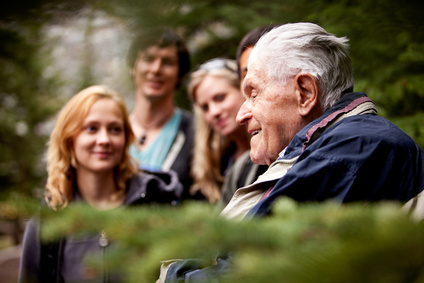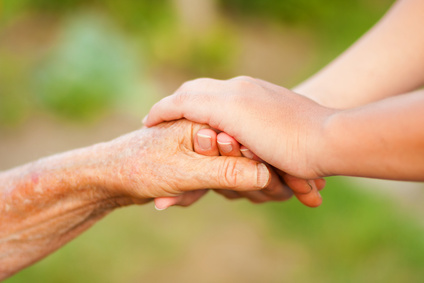Stopping Elder Abuse: How We Can All Help

A while back, the financial counselors at LSS were trained about the issue of elder abuse, a growing problem in all our communities. Two social workers talked with us, answered all our questions, and showed us an enlightening, although disturbing film.
Elder abuse can take many forms including financial exploitation, physical abuse, and neglect. Just like it takes a village to raise a child, it takes all of us to help stem the surging tide of elder abuse. Think of your aging parents or grandparents who could become someone’s victim. Whenever you see something out of the ordinary or even suspicious, you can help your aging loved ones or other elders by simply making a phone call to report your concerns.
What is “Common Entry Point?”
Counties in Minnesota are simplifying the process of addressing elder abuse reports by using a centralized reporting process called the Common Entry Point. The Common Entry Point receives all reports of known or suspected maltreatment. It then works with the appropriate authorities to investigate and address any problems. The phone line is staffed 24/7 so reports can be taken immediately. To find your county’s Common Entry Point contact, call Senior Linkage Line at 1-800-333-2433. You can also contact your local county social services or the Minnesota Department of Human Services Adult Protective Services at 1-651-431-2609. If you live outside of Minnesota, contact your county social service agency or local law enforcement when you have concerns about someone.
Who’s at risk?
The populations at highest risk are those who depend on others for their care or some help with daily living tasks. Some elders have a higher risk of being abused simply because they are disabled or frail.
What are the Warning Signs of Elder Abuse?

1. Physical Abuse: You may notice bruises, black eyes, burns, cuts or broken bones. Or, the elder may simply say someone is hurting her or she is afraid of someone.
2. Neglect: Signs of neglect may be more subtle, but if you look, you can see them. Examples include dehydration or weight loss, poor hygiene or pressure sores, incontinence, depression or confusion. Elders can suffer from self-neglect if they are no longer able to care for themselves.
3. Financial Exploitation: This abuse is even more insidious simply because it is not observable like neglect or physical harm. Some examples are the elder's bills not being paid, the elder has no access to their own money, assets are sold or transferred, the elder is taken to the bank to withdraw money, or personal property such as cash, credit cards, checks and jewelry are missing.
Who are the abusers?
Unfortunately, elder abuse can occur anywhere. For example, maltreatment can occur in an elder’s home, nursing home, assisted living facility or adult day program. And abusers can be anyone including spouses, children, other family members, staff and the elder person themselves. When seniors become vulnerable and unable to properly care for themselves, they become at risk for “self-neglect.”
What should you do?
Simply make the call! And if you’re a mandated reporter, the law requires you to make the call!
If we don’t help, vulnerable adults will never get the help and protection available for them. Even when they know something is wrong, many vulnerable adults are reluctant to tell anyone. And when asked directly, many will deny that harm has occurred. Therefore, it is crucial that all of us, whether family members, friends, doctors or neighbors, make a report when we suspect abuse has occurred. Your call could be the lifeline for an abused elder to make sure they get the help they need!
What happens after I call?
Please don’t worry that you may be opening a “can of worms” needlessly for a family. One of our counselors asked specifically about what happens when a report is made. Unless there is an immediate need for emergency help for someone (at which time you should call 911), the police or sheriff are not going to storm the person’s home or arrest anyone.
Instead, social workers review the report and decide what steps to take next depending on the situation. They start conservatively by contacting the household which may be followed by a home visit. This allows them to assess the situation further and connect families with community resources they may need. Or, if more aggressive action is warranted, social workers can get the ball rolling.
Remember, your concern and action can help stop this ugly practice. Be alert and take the time to make a call. And if you’re having any doubts, put yourself in the elder’s position – wouldn’t you want someone to help if you needed it?
LSS has a long history and well-deserved reputation for integrity, and we are committed to empowering the people in our communities, whether it be financial matters or in other areas in a person's life. Give us a call at 888.577.2227 and we can help you find the right resources for issues like these. Or, visit our website.
Barbara Miller is a Bankruptcy Counselor at LSS Financial Counseling.
